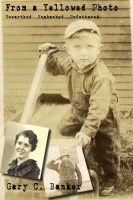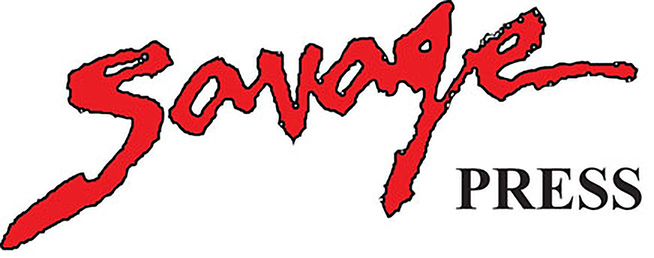Author Interview:

Gary C. Banker
When did you start writing?
Writing for me began before I even knew how to form the letters in the alphabet. When I was a child, my
parents bought me a Big Chief notebook, red cover with the silhouette of a Native American chief. I remember sitting in my room, holding a pencil, and squiggling on the lines of the page. In my mind, I knew what I was writing. There was my birth as an author.
I did not officially begin to write with any sense of being able to communicate my ideas until I was around 30. Prior to that, attempts were made in classroom assignments. My papers would be returned bloodied; I never felt I had the ability. Then, I faced my fears when I was left solo to complete a writing project. I began with trepidation; I finished with self-confidence.
Do you write only poetry?
While I prefer the freedom of expression in free verse poetry, I have also written in other styles: essays for articles, scripts for plays, non-fiction works, extended narratives for grants. These forays were primarily work-related.
What is the most challenging aspect of writing poetry?
Avoiding word play and focusing on communicating the essence of the message or image is often a battle for me in writing poems. My right brain can fly unfettered in its expression; my left brain will fight to dominate. That is where I get caught up in the process and product rather than the purpose of the writing. The images or words that I use are artificial – gratification for the organizational portion in my brain. As I return to a piece that has been a battle to complete, I find that I work and re-work the passages until I return to what I remember as the original purpose of the writing.
In your experience is writing poetry different than other forms of writing such as fiction, or reporting, or drama?
While each of those forms has its unique qualities, what I bring as I begin is creativity. That would be the common bond; that is where the individualistic twist is born. I then craft each piece within the intended style.
What do you think are the major themes in your poetry?
My primary motivations in writing have been my family, my life experiences, and the process of writing itself. As humans, we are a combination of how we react or not react to stimuli in our lives. For me, my family has been an important factor in defining who I am as a person. Another deciding factor has been experiences in my life – careers and memories that have helped me in identifying my beliefs and ideals. The last major influence is the writing process. I read an essay in Time magazine once wherein the author stated that we have stories burning inside of us that we want to tell. When writing happens for me that means I am on fire with ideas.
Has writing in general taught you anything about yourself that you didn’t previously know?
Writing has probably served as more of an affirmation for me at this stage in my life. Once, when I was using Fulghum’s format that he used in his best seller, I was amazed at the various important lessons that I generated for that piece. That was where I re-discovered what was rummaging around in the far reaches of my mind, pulling them together in one statement. It was like sitting back and looking at how my life unfolded as I read the list.
When do you write?
I write primarily earlier in the day, unless an idea has been percolating long enough so that it needs its birth on the page.
How do you write? On a computer? With pen and/or pencil on a table or notebook?
A yellow legal tablet and pencil are my preferred method of writing. I enjoy and do use a computer often. What I discover is that it is too easy for me to go back and erase my initial ideas. Sometimes their essence is lost. With my legal pad I have lines drawn to other possibilities which enable me to see the path that my mind had been taking in its need to express an idea.
Do you have any peculiar or odd writing habits or quirks?
Not really. I see myself as the typical author: I like alone time in a familiar setting that is free from distractions. Or … maybe that is quirky. Once an idea has reached its point of maturity in my mind, I have a mental itching – an uneasiness that drives me from what I am doing to either the computer or the legal pad. That is when I really am not listening in conversations or when I cease to be observant in what’s going on around me. I am overwhelmed with words and the floodgates cannot retain them.
How many days a week do you write?
I would like to say that I am one of those authors who sit down at a designated time in a specific setting that has been designed to promote creativity as well as act as a buffer for interruptions. This only happens if I am writing for an identified purpose or deadline. Other than that, I wait for the muse to descend and then respond to her call.
Do you keep a journal?
Each of us has regrets in life. Mine would be that I never got into the practice of using a journal. When I taught creative writing at the high school I encouraged my students to maintain a journal – a collection of pictures, phrases and ideas that could serve as motivators for future writings. I would encourage them to utilize them when they were experiencing writer’s block. I wish I would have followed my own recommendations.
Has any particular book inspired you as a writer?
My favorite book – series, actually – was created by J.R.R. Tolkien. I always admired how he could create a world that never existed and give it such life that readers believe in its reality. He created not only a now but a history that gives depth to both his characters and his plot. Tolkien even created languages for his characters as well as runic symbols. His ability to go beyond the bounds of normality and create a realistic fantasy has always served as motivation for me. He broke the rules, so to speak. I like rule breakers.
What are your writing aspirations?
In my creative writing classroom I emphasized the importance of voice to my students. They needed a safe atmosphere wherein they could feel free to experiment with what they wanted to say in a way that they wanted to say it. I value voice. Writing for me, then, is that ability to give my voice life. That, above anything, is my aspiration.
Are you writing to anyone in particular as you create?
While I am not writing to any particular person as I write, I find that in my mind’s eye I often have the image of the individual about whom I may be writing. It is as if each one is watching over my shoulder, wondering what I will say next.
Do you travel to gain inspiration or are you a home-body?
How can I say this properly? I am a travel slut. I will travel with any one at any time to any place for any reason. The experiences that I accumulate along the way are only extra fodder for future writings. The purpose for me, then, is not that I might get an idea from the trip; it is the adventure that is tantamount to me.
What book are you currently reading?
My wife often tells me that I am a difficult person to buy for – especially when it comes to selecting books that I might like. I do not stay in one genre or with one author. I find myself a reading dilettante; I enjoy a smattering of many things. Presently I am reading a non-fiction book about the Renaissance wherein the author proposes that the images of beauty and perfection that we hold of that period outshine the seedier portion of the story. The author is telling us readers that the artists and thinkers were human, not demigods as they may be portrayed. While it sounds like intellectual smut, it is actually an interesting premise.
Name an author you admire. Why?
While I did previously mention J..R.R. Tolkien, I also need to mention e.e. cummings as a major influence on my writing. Poetry in school anthologies is filled with rhyme and rhythm. Specific patterns are introduced to the reader to broaden our understanding of poetry. One unique form that broke my image of what a poem can be was created by cummings. He was not confined by grammatical rules; he was not limited in form nor pattern in his expression. He was a rule breaker and, as I said before, I like rule breakers.
What do you do in your spare time? Hobbies?
The love of gardening is something that I inherited from my father. While he relished straight lines, using strings during planting so that each plant was spaced in one line equally equidistant from those around it, I find that I like the free form of curved lines and clumps of plants with a periodic neighbor that has been deposited by some bird or rodent. Weeding and planting are mindless for me. They are opportunities to let ideas percolate while I am otherwise occupied. Again, I’m the rule breaker – or maybe it’s just putting my own imprint on it.



Leave A Comment
You must be logged in to post a comment.